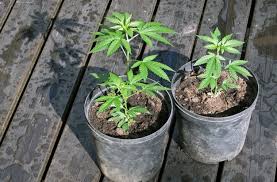Traveling freely, visiting friends and family, and continuing operating a business or working at a job are all being prevented by coronavirus fear and the government crackdowns pursued in the name of countering coronavirus. Also apparently being prevented by the same factors is the ability of Americans to vote in elections this year on ballot measures that would roll back aspects of the drug war.
Tom Angell wrote Tuesday at Forbes:
Marijuana and drug policy reform advocates came into 2020 believing it would be a big—and perhaps unprecedented—year for legalization and decriminalization measures on state ballots. From California to Missouri to Oregon, they had high hopes for placing far-reaching initiatives before voters in November.
But many of those efforts have been severely impeded by the coronavirus pandemic, which has made mass signature gathering to qualify ballot measures all but impossible as public health and government officials have urged social distancing measures.
Angell writes in his article about major coronavirus-related impediments to potential drug war rollback ballot measures in California, Missouri, Nebraska, Oregon, and Washington, DC qualifying for voters’ consideration.
On the bright side for drug war critics, Angell reports that voters in Mississippi, New Jersey, and South Dakota will have drug war rollback proposals on their ballots. Angell also notes that the people behind an Arizona marijuana legalization ballot measure have announced they have collected more than the required signatures to qualify the measure for the ballot, though the state government has not yet verified this claim.
Read Angell’s article here.


